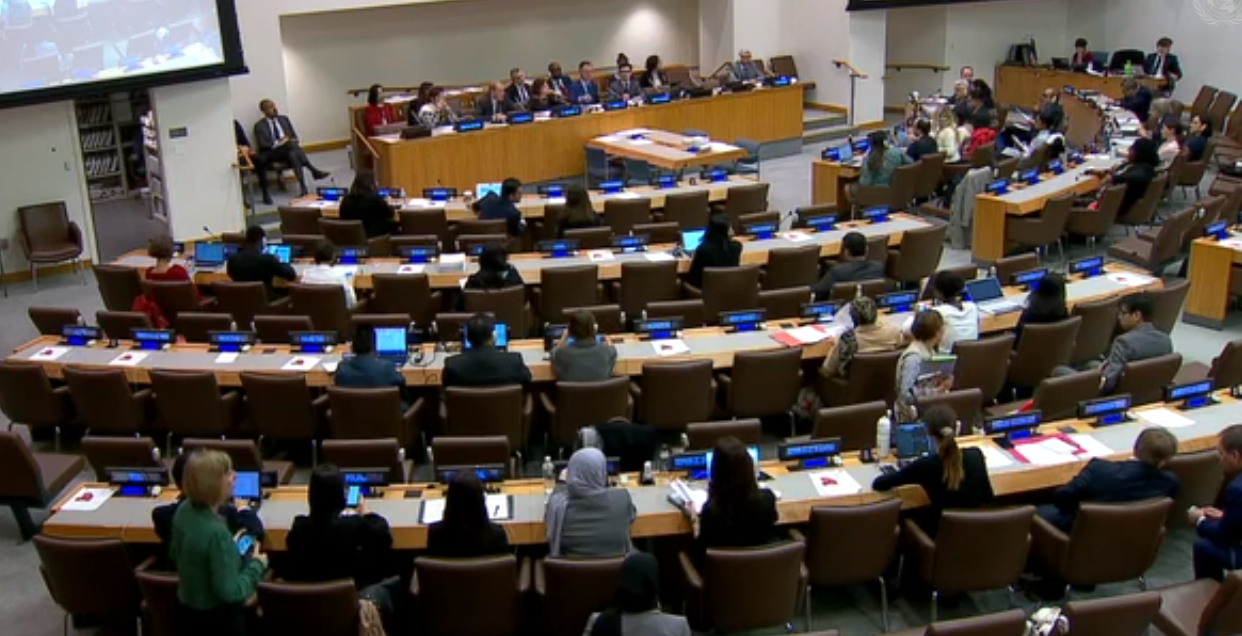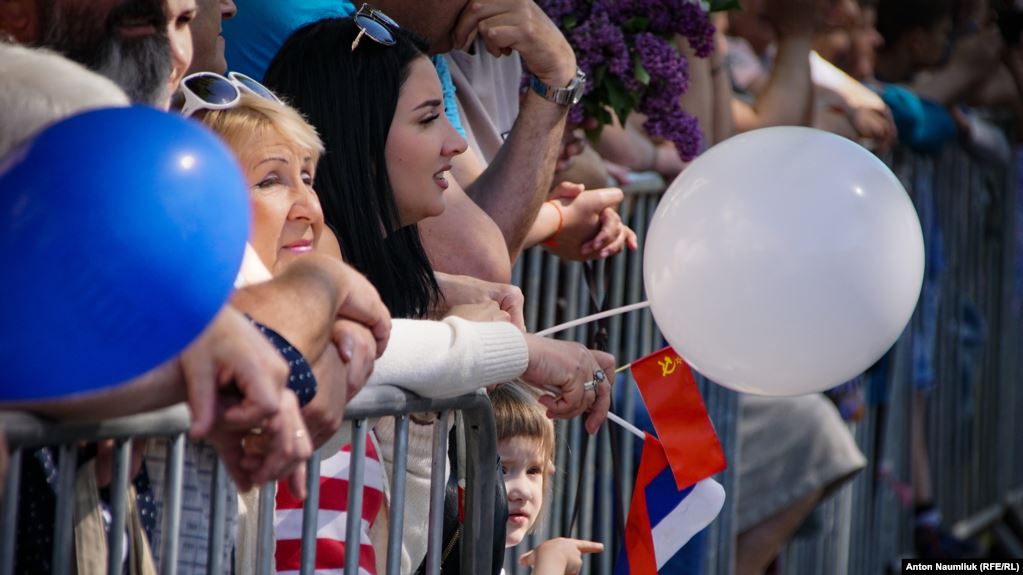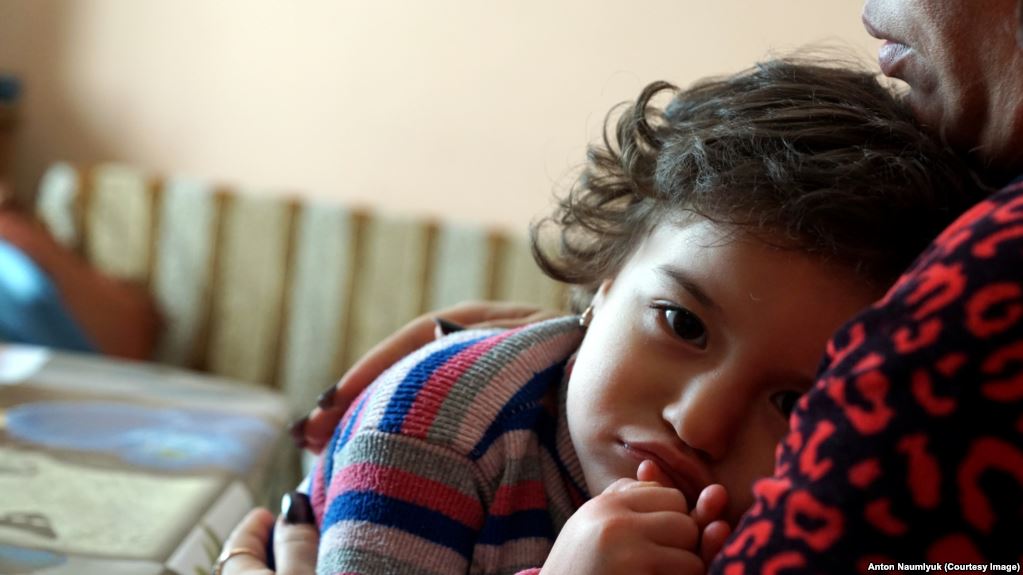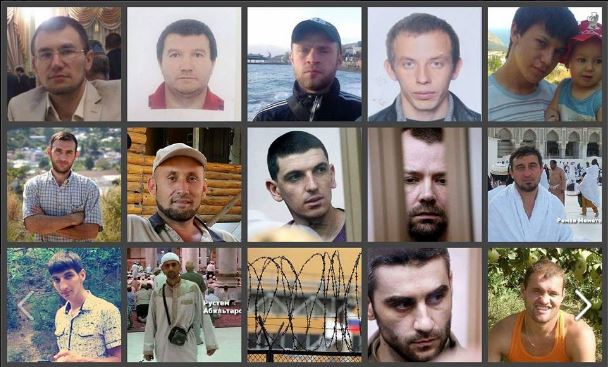A formal presentation of UN Secretary-General António Guterres's report took place on 14 October in New York. The report reveals multiple Russian crimes in Crimea, including a direct replacement of the population in the occupied region.
By resettling people from mainland Russia to Ukrainian Crimea in an attempt to alter the demographics of the area, Russia deliberately violates Geneva conventions.
Read also: New UNGA resolution: Crimea temporarily occupied by Russia, Russia must release political prisoners & stop repressions (December 2018 Resolution)
It was the UN Assistant Secretary-General for Human Rights Andrew Gilmour who presented the report on how the Ukrainian 2018 resolution is being implemented. Answering a question by a Ukrainian representative in the course of the presentation, Mr. Gilmour emphasized that transferring populations into an occupied area violates the Geneva Conventions, in particular, the fourth Geneva Convention on the Protection of Civilian Persons in Time of War.
As the Russian delegate in his objection stated that the General Assembly’s Resolution on human rights in Crimea was “politicized, based on unverified and clearly falsified information,” Andrew Gilmour reminded that his office has not been unable to access Crimea despite the requests it made to Russia.
Oleh Nikolenko, Vice-Chair of the UN Committee on Information and Spokesperson of Permanent Mission of Ukraine to the United Nations, described the importance of the UN Sec-Gen’s report for Ukraine,

Two important aspects:
- For the first time in five years of the occupation, we have an analysis of the situation on the Crimean peninsula prepared by the UN Secretary-General… The most important things are named:
- Russia is an occupying power, subject to obligations under international law.
- Russia completely ignores these obligations.
- Russia deliberately pursues policies aimed at changing the demographic situation in Crimea, which is a gross violation of international humanitarian law. On the one hand, the Russian authorities are taking measures to coerce those who disagree with the occupation to leave the peninsula, and on the other, in 2014-2018, it has transferred 140,000 of its citizens to the Ukrainian peninsula, including servicemen and their families ... This, in particular, is made to secure the annexation attempt, to create additional obstacles for further de-occupation.
Changing demographics in the occupied territories violates the Fourth Geneva Convention. Russia implemented the same scenario in the occupied territories of Georgia.
It is important for Ukraine that the UN Secretary-General finally spoke out on this. All Russian crimes are recorded and will be used to hold Moscow accountable, including in subsequent resolutions and international courts.
Volodymyr Yelchenko, the permanent representative of Ukraine at the United Nations, thanked the Secretary-General for the report and noted that the UN should take the necessary measures to stop the transfer of Russian population to Crimea,

At the outset, my delegation would like to extend its sincere appreciation to the UN Secretary-General for the release of 12 reports, and among them of the very first report “Situation of human rights in the Autonomous Republic of Crimea...” ... I would also like to ask you, Mr. Gшlmour, while reporting to the UN GA to pay special attention to the main root causes of human rights violations and abuses in Crimea, namely the foreign aggression and temporary occupation of the peninsula by the Russian Federation. ... I would appreciate your advice on the steps and actions to be taken by the UN in general and the General Assembly, in particular, to stop transferring of the Russian population to Crimea and prevent consequences of such actions of the occupying power.
Population replacement in occupied Crimea
The report of the Secretary-General states, in particular, that international humanitarian law prohibits individual or mass forcible transfers, as well as deportations of protected persons from occupied territory regardless of the motive of such actions. The OHCHR (Office of the UN High Commissioner for Human Rights) notes that, according to the court registry of the Russian Federation, during 2017–2018 courts in Crimea ordered the transfer of at least 947 individuals considered foreigners under the laws of the Russian Federation, including the transfer of 518 Ukrainian citizens who lived in Crimea.
What is yet more important, under international humanitarian law, the occupying power must not transfer parts of its civilian population into the territory it occupies. As reported by OHCHR, during 2014–2018, 140,198 people changed their residency registration from regions of the Russian Federation to what Russia calls “the Republic of Crimea.” These relocations include appointments of public sector employees from the Russian Federation to Crimea, transferring servicemen with their families to the peninsula in the Russian framework of the militarization of the peninsula.
Read also: Russians moving into occupied Crimea now form one-fifth of its population
Other conclusions of the report

The UN Sec-Gen’s report, not only provides data and evidence of population replacement in Crimea but also confirms all other Russian crimes and violations mentioned in the previous UN General Assembly Resolutions. The most important cases are:
- Violating the A/RES/73/263 resolution, Russia denied the OHCHR access to the peninsula. Therefore, the Office was obliged to conduct remote monitoring based on the information from the human rights monitoring mission in Ukraine as well as Crimean civil activists and witnesses who fled occupied Crimea to mainland Ukraine.
- Russia, the occupying power, automatically extended the Russian Federation’s citizenship to all Ukrainian citizens who resided in Crimea on a permanent basis. This is a violation of the right to a nationality. People who rejected Russian citizenship were considered as foreigners and faced deportation.
- Russian Federation laws against terrorism, extremism, and separatism, designed to persecute political opponents, were applied to acts committed before the occupation, against all commonly accepted judicial norms.
- The same laws were used for arbitrary arrests, usually preceded by house raids and searches conducted by the police and the FSB special service. From 1 January 2017 to 30 June 2019, OHCHR recorded 186 searches. In some cases, individuals were reportedly detained even without formal charges.
- OHCHR received information alleging torture and ill-treatment of individuals deprived of their liberty, usually on the basis of the same above-mentioned laws against terrorism, extremism, and separatism. Torture was used to obtain forced confessions from the victims. Perpetrators resorted to various forms of torture, including mock executions, beatings, and electric shocks, as well as sexual violence.
- Prisoners had not received adequate medical assistance
- Religious organizations had to re-register according to Russian procedures. Some communities, including the Ukrainian Orthodox Church, chose not to re-register and now the Russian occupation authorities of Crimea consider that such organizations have lost their legal status. This led to the non-recognition of church property. Other religious communities with strong links to churches in other parts of Ukraine, like the Ukrainian Greek Catholic Church, were denied registration in the peninsula.
- To avoid repercussions for independent journalistic work, journalists frequently self-censored, used pseudonyms and filtered their content before publication.
- Authorities didn’t allow protests or rallies that were critical to Russian policies. In particular, courts arrested or fined 80 Muslim men who conducted single-person protests in October 2017 against criminal cases against other Muslims perceived as sympathizers of unauthorized religious groups.
- Further concerns emerged about the legitimate exercise of the right to freedom of expression in Crimea following the introduction by the Russian Federation on 18 March 2019 of new laws on the offenses of “public insults towards State authorities” and “distribution of false information of public importance.”
- OHCHR has documented a narrowing of space for manifestations of Ukrainian and Crimean Tatar identities and enjoyment of the respective cultures in Crimea. Crimean authorities exerted pressure on members of Ukrainian cultural organizations and imposed a total ban on the Mejlis, an important self-governing institution of the Crimean Tatar people. Members of the civic group “Ukrainian Cultural Centre” were threatened and interrogated by the sham authorities of Crimea on dubious grounds.
- The number of school students instructed in the Russian language increased to 96.7% of all students, from 90.7% in 2013–2014, and the number of students instructed in Ukrainian decreased to only 249 children from 12,694 in 2013-2014. OHCHR documented cases in which the school administration disregarded or rejected explicit requests from parents to use Ukrainian or Crimean Tatar as the language of instruction for their children.
- International humanitarian law forbids the occupying power to compel people on the occupied territory to serve in its armed or auxiliary forces. As of 2019, the total number of Crimean men conscripted into the Armed Forces of the Russian Federation since 2015 amounted to at least 18,000. There had been least 29 guilty verdicts in criminal prosecutions of Crimean men for draft evasion since 2017.
Read more:
- Russians moving into occupied Crimea now form one-fifth of its population
- New UNGA resolution: Crimea temporarily occupied by Russia, Russia must release political prisoners & stop repressions
- Military base instead of a resort: Crimea four years after the occupation
- Is handing out passports in the Donbas Putin’s solution to Russia’s demographic collapse?
- Russia’s deportation of Ukrainians and Crimean Tatars from occupied Crimea a “neo-imperial policy tool” – report




